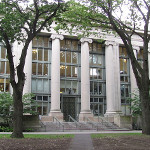ABA Gives Troubled Law School Three More Years of Accreditation
A teach-out plan for Thomas Jefferson School of Law, allowing limited accreditation until the end of the spring 2023 term, has been approved by the council of the ABA’s Section of Legal Education and Admissions to the Bar, according to a report in the ABA Journal.
Under the plan for the San Diego school, ABA accreditation will cover current law students and transient students. The council retains its authority to remove ABA accreditation before the spring 2023 term ends if the school fails to meet obligations.
The school was put on probation in 2017, and the council withdrew its ABA approval last summer.
